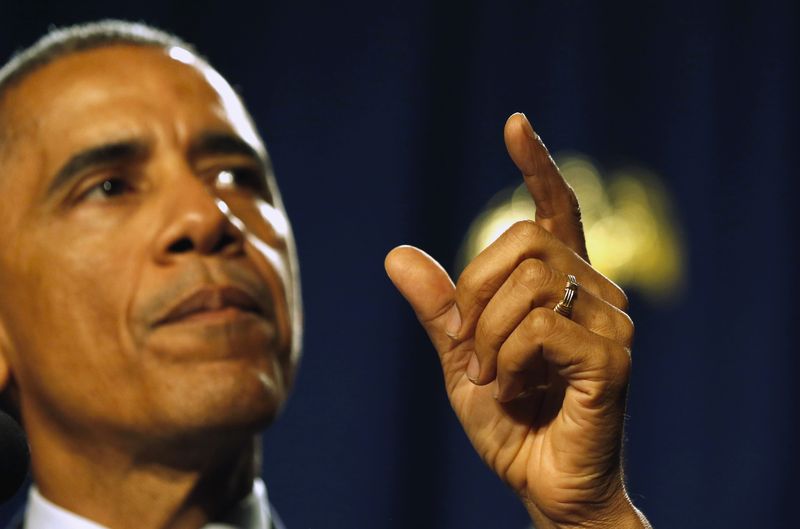WASHINGTON (Reuters) - President Barack Obama on Monday revived a proposal to fold the office of the U.S. Trade Representative and other trade bodies into a one-stop-shop for U.S. exporters, a plan that in the past drew mixed reviews.
The proposal in the fiscal year 2016 budget brings back a plan first suggested in 2012, which the administration said at the time could save $3 billion over 10 years.
It comes at a hectic time, with U.S. negotiators hoping to complete work on the 12-nation Trans-Pacific Partnership within months and lawmakers expected soon to consider legislation to streamline the passage of such deals through Congress. The United States is also negotiating a trade pact with Europe.
The revamp would put USTR, the Export-Import Bank, the Overseas Private Investment Corporation, the U.S. Trade and Development Agency, the Small Business Administration, parts of the Department of Commerce and rural business programs at several agencies under the same roof.
"By bringing together the core tools to expand trade and investment, grow small businesses, and support innovation, the new department would coordinate these resources to maximize the benefits for businesses and the economy," the budget proposal said. Commerce Deputy Secretary Bruce Andrews said there was no updated estimate for potential savings.
In the past, some lawmakers voiced cautious support for the streamlining plan while others worried it would create a bureaucratic behemoth that would compromise the independence of some of the trade bodies.
The Republican chairman of the Senate Finance Committee, Orrin Hatch, said eliminating USTR was "misguided at best."
"Folding an agency with a proven track record, like USTR, into a massive government bureaucracy would only undermine its effectiveness," he said in a statement.
USTR has the lead on free trade deals and World Trade Organization disputes. The Commerce Department supports exporters and helps adjudicate complaints about unfair competition from exports, and Ex-Im provides financial support for exporters and overseas buyers of U.S. goods.
The budget proposal also includes $469 million to expand duty-free access for exports from selected trading partners and a separate program aimed at African nations.
